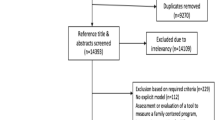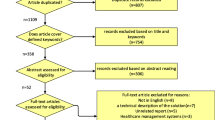Abstract
Background and aims: Dementia is a serious disease that places undue burden on family care providers. This study aimed to investigate caring burden and associated factors of care providers for dementia patients in an urban-rural fringe area in China. Methods: A total of 197 dementia patients ≧65 years of age were identified from July–November 2007 in 22 villages of Gushan Town, Fuzhou City, China, and 152 care providers of the patients were recruited and analyzed. The Care Provider Burden Inventory was used to evaluate the main burdens including overall burden and time-dependent, developmental, physical, emotional and social burdens. Factors associating with caring burden were analyzed. Results: The prevalence rate of dementia was 7.3% (197/2696) in study area. Four factors significantly increased overall care providers’ burden score: daily hours of caring time, payment source for patients’ medical expense, care providers’ religion and care providers’ role awareness (adjusted-R2 0.617). Patients with significantly impaired function of daily living (higher ADL scores) resulted in a higher caregivers’ time-dependent burden. Increasing hour of caring per day increased care providers’ time-dependent, physical and developmental burden. Care providers’ view of their role awareness as obligation increased score of time-dependent, developmental, physical and emotional burdens. Patient with physical disability significantly increased developmental, physical, emotional and social burdens. Conclusion: The main influence factors of the caring burden of care providers’ for dementia patients were length of daily caring hours, source of care receivers’ medical expenses, patient with physical disability and care providers’ role awareness (i.e., obligated vs willing).
Similar content being viewed by others
References
Fratiglioni L, De Ronchi D, Agüero-Torres H. Worldwide prevalence and incidence of dementia. Drugs Aging 1999; 15: 365–75.
Song Y, Wang J. Overview of Chinese research on senile dementia in mainland China. Ageing Res Rev 2010; 9 (Suppl 1): S6–12.
Ferri CP, Prince M, Brayne C et al. Global prevalence of dementia: a Delphi consensus study. Lancet 2005; 366: 2112–7.
Yan E, Kwok T. Abuse of older Chinese with dementia by family caregivers: an inquiry into the role of caregiver burden. Int J Geriatr Psychiatry 2011; 26: 527–35.
Comas-Herrera A, Wittenberg R, Pickard L, Knapp M. Cognitive impairment in older people: its implications for future demand for services and costs. Int J Geriatr Psychiatry 2007; 22: 1037–45.
Lerner AJ. Women and Alzheimer’s Disease. J Clin Endocrinol Metab 1999; 84: 1830–4.
Ma JF, Chen L, Su GM et al. Dynamic surveillance of risk behaviors facilitating sexually transmitted disease/acquired immunodeficiency syndrome transmission among permanent residents in Kmuming city in 1996–1999. Chin Epidemiol J 2001; 22: 323–5. [in Chinese]
Mo J, Zhang SX, Ma HW et al. Phone survey results of the residents’ behavior risk factors of 6 districts in Shenzhen. J Dis Control 2005; 9: 561–5. [in Chinese]
Kim H, Chang M, Rose K, Kim S. Predictors of caregiver burden in caregivers of individuals with dementia. J Adv Nurs 2012; 68: 846–55.
Chan SW. Family caregiving in dementia: the Asian perspective of a global problem. Dement Geriatr Cogn Disord 2010; 30: 469–78.
Novak M, Guest C. Application of a multidimensional caregiver burden inventory. Gerontologist 1998; 29: 798–803.
Wakefield J, Haneuse SJ. Overcoming ecologic bias using the twophase study. Am J Epidemiol 2008; 167: 908–16.
Zhang ZX, Hong X. The Mini-Mental State Examination in population aged 55 years and over in urban and rural areas of Beijing. Chin J Neurol 1999; 3: 149–53. [in Chinese]
Lawton MP, Brody EM. Assessment of older people: self-maintaining and instrumental activities of daily living. Gerontologist 1969; 9: 179–86.
Hertzog C, Van Alstine J, Usala PD, Hultsch DF, Dixon R. Measurement properties of the Center for Epidemiological Studies Depression Scale (CES-D) in older populations. Psychol Assess 1990; 2: 64–72.
American Psychiatric Association. Diagnostic and statistical manual of mental disorders, 4th ed. Washington: APA, 2000.
Katzman R, Zhang MY, Ouang-Ya-Qu et al. A Chinese version of the Mini-Mental State Examination: impact of illiteracy in a Shanghai dementia survey. J Clin Epidemiol 1988; 41: 971–8.
Bland JM, Altman DG. Difference versus mean plots. Ann Clin Biochem 1997; 34: 570–1.
Germain S, Adam S, Olivier C et al; ICTUS-EADC Network. Does cognitive impairment influence burden in caregivers of patients with Alzheimer’s disease? J Alzheimers Dis 2009; 17: 105–14.
Kim MD, Hong SC, Lee CI, Kim SY, Kang IO, Lee SY. Caregiver burden among caregivers of Koreans with dementia. Gerontology 2009; 55: 106–13.
Pruchno RA, Kleban MH, Michaels JE, Dempsey NP. Mental and physical health of caregiving spouses: Development of a cause model. J Gerontol 1990; 45: P192–9.
Kiecolt-Glaser JK, Dura JR, Speicher CE, Trask OJ, Glaser R. Spouses care providers of dementia victims: longitudinal changes in immunity and health. Psychosom Med 1991; 53: 345–62.
Arai Y, Kumamoto K, Washio M, Ueda T, Miura H, Kudo K. Factors related to feelings of burden among care providers looking after impaired elderly in Japan under the Long-Term care insurance system. Psychiatry Clin Neurosci 2004; 58: 396–402.
Author information
Authors and Affiliations
Corresponding author
Rights and permissions
About this article
Cite this article
Li, H., Zhang, H., Huang, H. et al. Caring burden and associated factors of care providers for senile dementia patients in an urban-rural fringe of Fuzhou City, China. Aging Clin Exp Res 24, 707–713 (2012). https://doi.org/10.3275/8721
Received:
Accepted:
Published:
Issue Date:
DOI: https://doi.org/10.3275/8721




